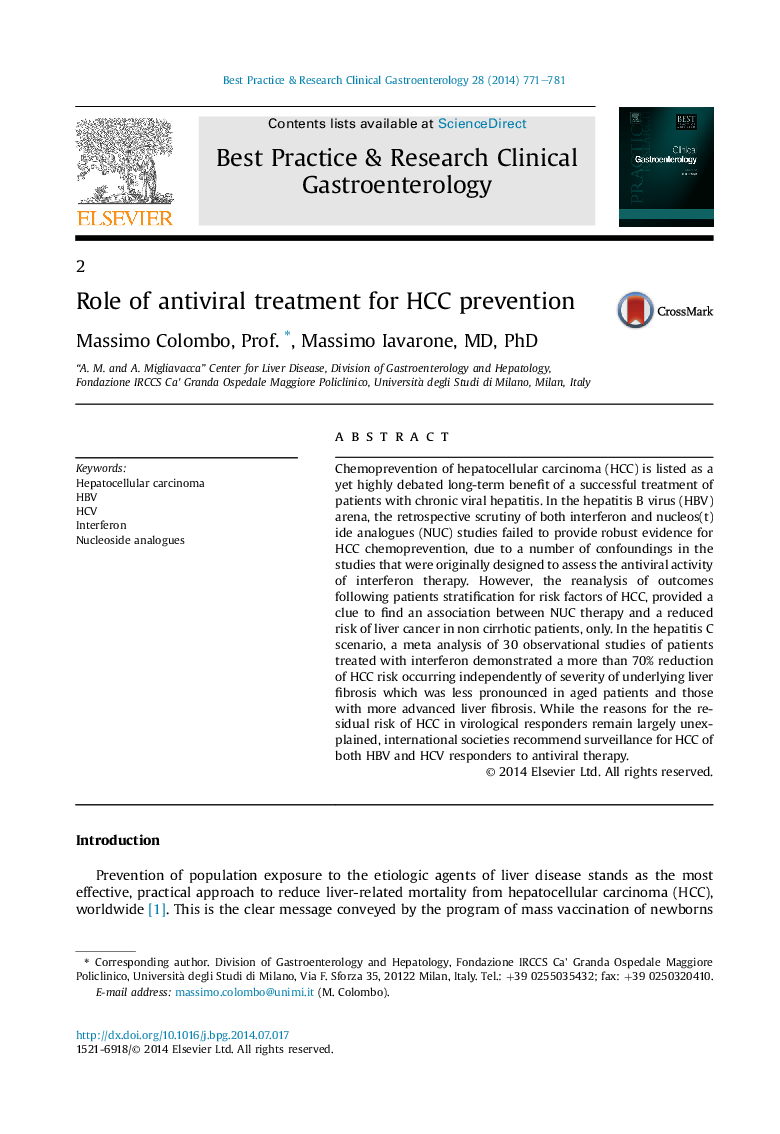| Article ID | Journal | Published Year | Pages | File Type |
|---|---|---|---|---|
| 3254103 | Best Practice & Research Clinical Gastroenterology | 2014 | 11 Pages |
Chemoprevention of hepatocellular carcinoma (HCC) is listed as a yet highly debated long-term benefit of a successful treatment of patients with chronic viral hepatitis. In the hepatitis B virus (HBV) arena, the retrospective scrutiny of both interferon and nucleos(t)ide analogues (NUC) studies failed to provide robust evidence for HCC chemoprevention, due to a number of confoundings in the studies that were originally designed to assess the antiviral activity of interferon therapy. However, the reanalysis of outcomes following patients stratification for risk factors of HCC, provided a clue to find an association between NUC therapy and a reduced risk of liver cancer in non cirrhotic patients, only. In the hepatitis C scenario, a meta analysis of 30 observational studies of patients treated with interferon demonstrated a more than 70% reduction of HCC risk occurring independently of severity of underlying liver fibrosis which was less pronounced in aged patients and those with more advanced liver fibrosis. While the reasons for the residual risk of HCC in virological responders remain largely unexplained, international societies recommend surveillance for HCC of both HBV and HCV responders to antiviral therapy.
